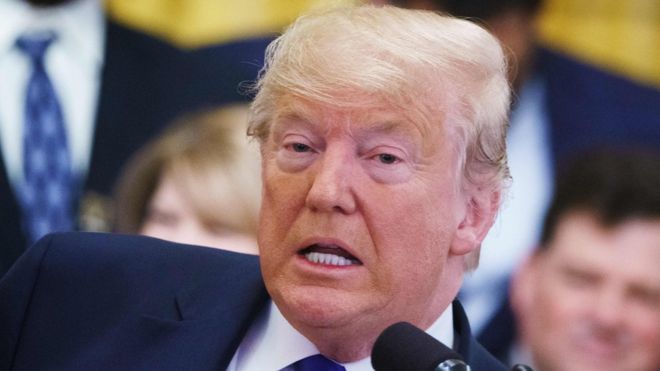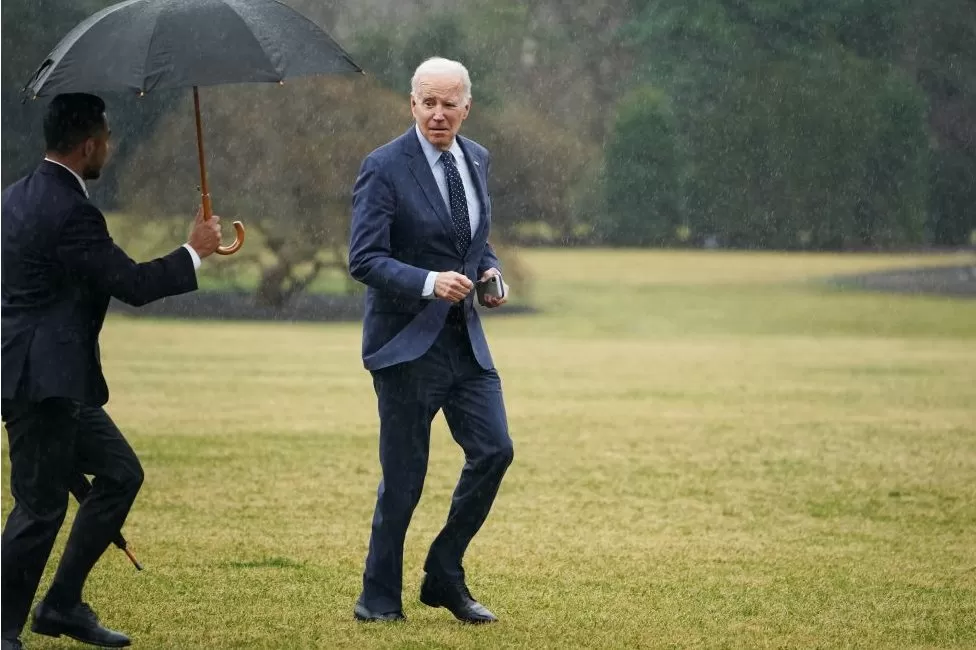America first, Africa last? – The economic and geopolitical fallout of Trump’s policies

Since his return to America’s presidency on 20th January 2025, President Donald Trump has embarked on various policy actions that undoubtedly have dire implications for global trade, immigration as well as international relations.
His administration’s strong stance on immigration, foreign aid and trade tariffs has sent shockwaves through the global economy, predominantly countries in the Global South, including Africa and Ghana.
Whilst Trump’s policies are anchored on protecting American interests, they have provoked strong reactions worldwide and could lead to a shift in the global economy and geopolitics.
One of the most immediate and pressing concerns is Trump’s renewed immigration crackdown which is leading to the mass deportation of individuals who are deemed to be residing illegally in the United States.
African immigrants, among other groups are facing the brunt of this aggressive policy.
Many of these individuals had established livelihoods in the United States and regularly send remittances back home to support their families and contribute to their home economies. In Ghana, remittances from the diaspora play a crucial role in economic stability and provides funds for education, healthcare and entrepreneurship.
The abrupt deportation of Ghanaian immigrants not only disrupts their lives but also threatens these positive impacts of remittances, which are a substantial component of Ghana’s Gross Domestic Product (GDP).
This action could aggravate unemployment and economic hardship and eventually force many to seek alternative, often precarious, migration routes to sustain their livelihoods.
Another major policy shift under Trump’s administration is the drastic reduction or a freeze on foreign aid particularly to countries in the Global South, including Africa. The United States has long been a key donor in funding developmental projects, infrastructure and humanitarian assistance across the continent.
Cutting foreign aid could have dire consequences for healthcare, education and economic development in many African nations. Ghana, for example has benefited from various programmes which were funded by the United States such as the Millennium Challenge Corporation (MCC) and USAID initiatives which support governance, agriculture and infrastructure development.
The abrupt withdrawal of such funding could derail ongoing projects and leave gaps that African governments may struggle to fill.
Moreover, reduced foreign aid could make Africa more dependent on other global players such as China, which has been expanding its economic footprint on the continent through loans, infrastructure projects and trade partnerships.
Trump’s trade policies have also taken a more protectionist turn of which high tariffs are being imposed on countries that he believes engage in unfair trade practices. Whilst his trade rhetoric has mostly been directed at China, African countries could suffer collateral damage.
The United States has historically been an important trade partner for Africa through initiatives like the African Growth and Opportunity Act (AGOA) which provides duty-free access markets for African goods in the United States.
If Trump chooses to scale back or entirely dismantle AGOA in pursuit of his America-first trade policies, African exporters, including Ghanaian businesses in sectors such as textiles, agriculture and manufacturing, could lose access to crucial markets. This would weaken Africa’s ability to compete in global trade thereby increasing economic hardships across the continent.
For example, South Africa has already become a target of Trump’s economic sanctions which is a signal that more African nations may face similar punitive measures if they engage in policies that the Trump administration deems unfavourable.
These sanctions could discourage foreign investment, harm industries reliant on United States partnerships and strain diplomatic ties between the United States and African governments.
Whilst some African nations may attempt to negotiate with the Trump administration to secure exemptions or softer policies, others could pivot towards alternative economic allies and accelerate their engagement with China, Russia, the European Union (EU), BRICS and other unions or nations.
In light of all these happenings, China stands to be the biggest beneficiary if Trump continues to isolate African nations through harsh policies.
With the United States withdrawing its financial support and economic engagement, China could step in to fill the void and expand its influence across Africa through increased trade, investments and infrastructure development under the Belt and Road Initiative (BRI).
Many African nations may deepen their economic reliance on China to secure loans and grants to compensate for the shortfall left by the United States.
Nevertheless, this dependence comes with its own risks such as about debt sustainability and the potential for neo-colonial economic structures where Africans become overly reliant on Chinese financial assistance and technology.
Given the implications of Trump’s actions, Africa especially Ghana must adopt strategic responses to safeguard their economic and geopolitical interests.
First, governments in Africa must strengthen intra-African trade by fully implementing the African Continental Free Trade Area (AfCFTA).
This would reduce reliance on external trade partners like the United States and China whilst promoting economic resilience through regional collaboration. A more unified African market would provide opportunities for local industries to thrive and reduce vulnerabilities to external shocks.
Additionally, Africa should diversify diplomatic and economic partnerships beyond traditional allies.
Engaging with emerging economies in Asia, Latin America and Europe could provide alternative sources of trade, investment and development aid.
Strengthening ties with multilateral organizations such as the African Development Bank (AfDB), the World Bank and the International Monetary Fund (IMF) could also help alleviate the financial impact actions taken by the Trump administration.
Furthermore, African governments should prioritize self-sufficiency and invest in key sectors such as agriculture, technology and renewable energy.
Reducing dependence on foreign aid requires fostering domestic industries, supporting small and medium-sized enterprises (SMEs) and creating an enabling environment for innovation and entrepreneurship.
Governments should also develop policies that attract investment from the Africans in the diaspora who could play a crucial role in financing and developing local businesses.
Finally, diplomatic engagement with the Trump administration remains a necessary tool. African leaders should engage in high-level discussions with U.S policymakers to negotiate better trade terms, seek exemptions from tariffs and advocate for the continuation of beneficial programs like AGOA.
By utilizing the collective strength of the African Union and regional economic blocs, Africa can present a united front to negotiate from a position of strength.
Trump’s policy shifts have introduced new challenges for Africa but they also present an opportunity for the continent to reimagine its economic future.
By fostering regional integration, diversifying trade partnerships, investing in domestic industries and engaging diplomatically, Africa can circumnavigate these turbulent times whilst positioning the continent for sustainable growth and economic independence.
Columnist: Scott Edward Agyemang





